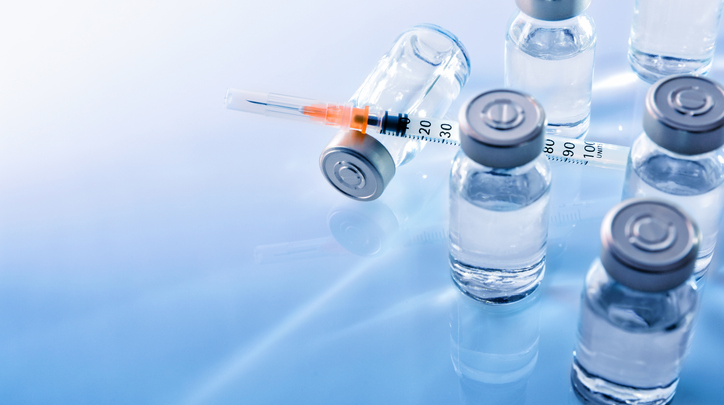Medical Freezers: The Key to Making Vaccines Available Globally
Researchers predict that the number of COVID-19 vaccines produced in 2021 could top 9 billion. With vaccine production now in full swing, health care officials are tackling the next big challenge: ensuring that vaccines reach destinations across the globe without compromising their effectiveness.
In order to effectively fight COVID-19, the “cold chain” must be maintained by manufacturers, distributors, storage facilities, and health care facilities. Failure to store vaccines within the required temperature range could affect their ability to combat COVID-19, rendering them useless against the virus. Below is a look at the COVID-19 cold chain and the single most important steps health care officials can take to ensure vaccines are protected.
What is COVID-19 cold chain management?
“Coronavirus vaccines require refrigeration, for some products as low as minus 70 degrees Celsius; cold chain management, whereby adequate refrigeration levels are maintained throughout manufacturing, storage and distribution of vaccines, ensures integrity of vaccine compounds via specialized packaging as well as refrigeration and freezer devices.” – Underwriter Laboratories (UL)
Before diving into the measures needed to preserve COVID-19 vaccines, it’s helpful to understand the vital role that cold chain management plays in the process. In a nutshell, cold chain management refers to the collection of measures taken to ensure that vaccines are adequately refrigerated during the manufacturing, storage, and distribution process.
What steps can supply chain professionals take to maintain the cold chain?
Efficient cold chain management for COVID-19 vaccines does not unfold on its own. Underwriter Laboratories (UL) notes that the process “entails many moving parts, as well as particular requirements.” Many of these requirements relate to temperature maintenance while vaccines are being transported and stored. Here are some essential steps to follow when handling COVID-19 vaccines:
1) Know the temperature requirements of each vaccine manufacturer
The path to proper vaccine storage begins by heeding manufacturer temperature requirements. As manufacturers across the globe work tirelessly to develop vaccines, there are currently two vaccines authorized and recommended to prevent COVID-19 in the United States: The Moderna COVID-19 vaccine and the Pfizer-BioNTech COVID-19 vaccine. Additionally, there are several other vaccines undergoing clinical trials.
Knowing the temperature storage requirements of each vaccine is essential, as there are stark differences between the temperatures outlined by Pfizer-BioNTech and Moderna. Here is a summary of the temperature requirements of each:
• Moderna: Recommended freezer temperatures are between -25°C and -15°C (-13°F and 5°F).
• Pfizer-BioNTech: The recommended storage temperature range is -80°C and -60°C.
2) Educate all personnel handling vaccines
“Vaccines will arrive at a temperature between -80°C and 60°C (-112°F to -76°F) in a thermal shipping container with dry ice. The diluent and ancillary supply kits are packaged separately from the vaccine. Unpack the thermal shipping container following the manufacturer’s directions.” – U.S. Centers for Disease Control (CDC)
Vaccines may pass through many hands and checkpoints prior to arriving at their final destinations. All personnel handling vaccines during storage, shipment, and receiving should receive comprehensive training on the handling process. In particular, receiving and laboratory staff should exercise special care to follow the manufacturer’s instructions for unpacking and storage.
3) Run regular temperature checks
The CDC recommends checking and recording unit temperatures every workday. Be sure to maintain a detailed log of your temperature checks and store the information in a central location where you can quickly access it if necessary.
4) Save your storage records for at least three years
You never know when a compliance check, audit, or surprise visit from a regulatory agency may occur and require you to pull vaccine storage records. As a general rule of thumb, it is a good idea to save storage records for three years, though your jurisdiction may recommend a longer timeframe.
5) Know the steps to follow if temperatures are out of range
In the unlikely event that a vaccine’s storage temperature is found to be out of range, it is important to take action right away. Pfizer-BioNTech and the CDC recommend that handlers follow four helpful steps to address the situation:
• Do NOT discard the vaccine
• Place a label that says, “Do Not Use” on the vaccine
• Complete a Vaccine Troubleshooting Record
• Reach out to the manufacturer for further storage instructions
What is the single most important key to maintaining the cold chain?
Medical freezers are the key to preserving the Cold Chain. By keeping the vaccines at the precise temperatures required, medical freezers allow health care officials to store them, ship them, and keep them secure until they are ready to be administered. Here are just a few of the many benefits medical freezers have to offer:
• A wide range of sizes: Medical freezers are available in sizes ranging from compact countertop models to full-size upright models.
• A variety of styles: You can choose the type of door you prefer (stainless or glass) and can explore chest-style freezers as well.
• Voltage compatibility. Leading medical freezer manufacturers offer 115-volt models and 230-volt models for use across the globe.
• Compliance with industry standards: Today’s top manufacturers are safety-minded and produce models that are UL listed.
Your trusted source for COVID-19 vaccine storage
Clearly, medical freezers play a critical role in the COVID-19 vaccination process. But not all medical freezers are created equal. To ensure that you receive a high quality freezer with a warranty, it’s best to work with an established manufacturer with a focus on quality. Here are some reasons why pharmacies, hospitals, and warehouses across the globe are turning to American Biotech Supply to purchase freezers for their COVID-19 vaccines:
• 25 years of experience serving laboratories, manufacturers, and healthcare facilities
• A proven track record of success preserving COVID-19 vaccines for facilities worldwide
• A wide selection of UL and C-UL-listed freezers
• Sustainable designs that illustrate our commitment to preserving our resources
• All freezers are backed by industry-leading warranties
To learn more about our medical freezers, we encourage you to browse our medical freezer inventory and reach out to us with any questions. We invite you to contact us today, and look forward to serving as your trusted resource for all your Biotech needs!






